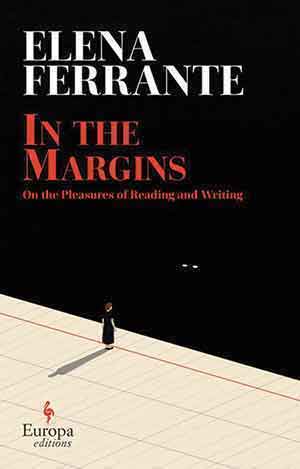 “In the Margins comprises four essays: ‘Pain and Pen,’ ‘Aquamarine,’ ‘Histories, I,’ and ‘Dante’s Rib.’
“In the Margins comprises four essays: ‘Pain and Pen,’ ‘Aquamarine,’ ‘Histories, I,’ and ‘Dante’s Rib.’
“Ferrante’s final essay goes back to the origin of Italian literature and, in giving us a vivid account of her relationship with Dante’s Commedia, continues on with the theme of literature as ‘conversation.’ Indeed, Dante’s ‘most astonishing gift’ is ‘identification’ in Ferrante’s eyes: ‘A Dantesque description is never merely a description but is always the self-transplanted, the heart hurtling swiftly—a few seconds—from inside to out.’ To exemplify this powerful feature, the author cites Dante’s neologisms such as ‘inluiarsi, intuarsi, inmiarsi (enter into him, enter into you, enter into me).’
“According to Ferrante, Beatrice is Dante’s sublime invention as the progenitor of a new hierarchy of women endowed with ‘intelletto,’ able to understand the poet’s praise and not just silent objects to be admired.” [. . .] -Ann Goldstein, World Literature Today, July 2022
Find Elena Ferrante’s In the Margins here.



